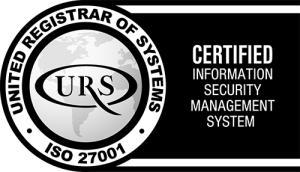Drugs to Bloodflow to Muscle
Status: different compounds are or have been tested in clinical tirals
Aim:
To improve heart and/or muscle function
Background:
When muscles contract blood is pushed out of the blood vessels, while contracting muscles actually need more blood (oxygen and nutrients). To compensate normally blood vessels in the muscle will dilate upon contraction. This is in part regulated by production of nitric oxide (NO) by the nNOS synthase enzyme. This enzyme is scaffolded to the membrane of muscle in blood vessels by dystrophin. Without dystrophin the nNOS synthase enzyme is not located properly and thus the ability to dilate blood vessels in heart and muscle is reduced. This can lead to insufficient oxygen supply to muscle and heart, which leads to damaged muscle and heart cells. There are many approved drugs that can improve the dilation of blood vessels. The drugs listed below are or have been tested in Duchenne patients in clinical trials.
Lisinopril
Lisinopril is an ACE inhibitor (ACE is an abbreviation of angiotensin converting enzyme). The molecule angiotensin 2 leads to constriction of blood vessels. This molecule is converted from angiotensin 1 by ACE. Thus, by inhibiting this conversion, less angiotensin 2 is produced, reducing constriction of blood vessels. The effect of lisinopril on heart function has been currently tested in Duchenne patients in sites in the USA, Japan and Canada. This trial also tests whether combined use of Coenzyme Q10 (an antioxidant) and lisinopril has further benefits on heart muscle function. Results have not yet been reported.
Other compounds for dilation of blood vessels
Spironolactone and eplerenone have shown encouraging results in mouse models, where treatment could prevent heart failure. These compounds are now tested in a clinical trial in DMD patients. Results about this clinical trial have been published: this revealed that there were no additive effects of spironolactone on top of eplerenone.
Discontinued due to lack of efficacy in clinical trials:
Revatio (Sildenafil) and Tadalafil
Revatio® (also known as Sildenafil or Viagra) and Tadalafil are PDE5 inhibitors. When NO is produced, this leads to a cascade of reactions that lead to dilation of blood vessels. PDE enzymes target compounds produced during this cascade, counteracting the dilatation of the blood vessel. Inhibition of PDE enzymes leads to a prolonged effect of dilatation.
Clinical trial:
Revatio has been tested in a clinical trial in DMD and BMD patients in Baltimore (MD, USA). However, this trial has been suspended, since results showed that Revatio is unlikely to provide benefit to adult DMD heart and muscle function, while there was a potential risk for cardiac events.
Based on the encouraging results of a pilot trial with tadalafil performed in a small cohort of DMD patients by Ron Victor, Eli Lilly as started a double-blind placebo-controlled trial in 330 DMD patients. Unfortunately, the results did not reveal any evidence for efficacy of tadalafil in slowing down disease progression in the whole group or in subgroups. As such, extension trials have been stopped. Eli Lilly has indicated that they are willing to share data obtained in this trial with the DMD community to help the clinical development of other therapeutic products.

